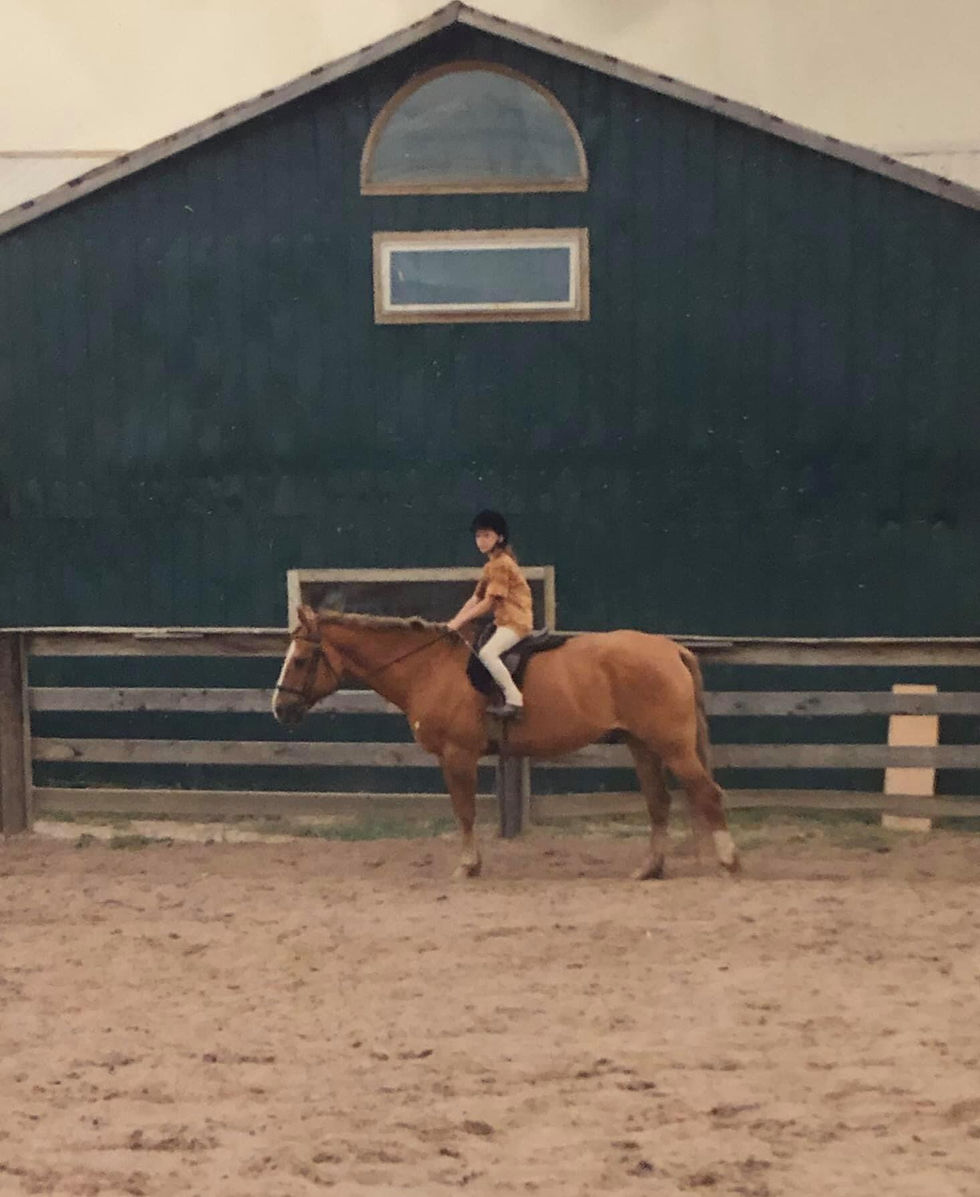A Young Professional's Perspective on Equestrian Canada's Coach Status Program
- Cate Chant

- Mar 18, 2024
- 3 min read

Last summer, I was invited to participate in a focus group in which Equestrian Canada requested feedback about their coach status program. When it was my turn to speak, I shared my concerns about the program.
As a young professional with a small number of showing clients, the cost of licensing is prohibitive. If you live in a remote area, rider levels are time-consuming and contribute little to the knowledge base of an experienced horseperson. I’ve seen licensed coaches set trappy gymnastics, post videos jumping horses with visible lameness, and send horses to the ring with tack disallowed by the rules governing the horse show.
As a horse show organizer, many of the incidents I’ve dealt with as a show manager and have witnessed stewards intercepting involved licensed coaches. With rated shows every weekend, overuse of horses is rampant at competitions. I’ve seen licensed coaches yelling at students, whipping horses repeatedly, and entering horses and people in classes well beyond their ability level.
In recent USEF meetings, there has been much discussion of social license to operate. In my opinion, Equestrian Canada should have reason to be concerned about the public-facing image of some of its licensed coaches and what this says about the structure and efficacy of its coach licensing program.
The program itself, and the pathways for exemption, do not reflect the breadth of the knowledge, competency and skills we should value in professionals. Riding or coaching poorly as a professional for 10 years is a pathway to exemption, but there is no consideration given to a successful career as an amateur spanning the same length of time.
Should a sport-specific coach licensing program for equestrians not include knowledge of the rule book, of ethical approaches to pedagogy, of putting the well-being of the equine and human athlete at the forefront of our decision making?
At the end of my turn, other participants nodded and clapped in agreement.
“Wow!” the moderator remarked. “We don’t usually have applause in these meetings.”
All of the participants in the focus group voiced similar concerns about the coach status program, but we are now at the onset of another competition season and nothing has changed except the timeline in which Equestrian Canada plans to implement coach licensing requirements at all rated shows.

I stand wholeheartedly behind Safe Sport and the background check requirements, concussion protocol and first aid training associated with the coach status program. But I think as long as we are requiring professionals to be licensed to coach at horse shows, we should be holding everyone to the same standard.
One of the pathways for exemption is a diploma from The University of Guelph’s Equine Science Program. I am two credits away from holding this diploma, and while I think there is great value in this program in teaching people about the ethology, physiology and management of horses, that education alone has not made me a better coach.
Another pathway to exemption is a degree or diploma in teaching or physical education, an education that enhances one’s understanding of how people learn but provides no meaningful insight on riding, horsemanship or the rules of our sport’s governing body. We require our judges to spend time at the horse show, shadowing established officials, but expect coaches to prove their competence entirely outside a horse show setting.
There is value, no doubt, in each of the pathways to coach licensing and/or exemption, but none negates the importance of the other elements that make up a good coach. A coach status program that actually benefits coaches, athletes, and our sport would combine elements of all these pathways rather than presenting them as an either/or.
What I learned as an amateur, learning from and working for top professionals, caring for my own horses and studying sports psychology has contributed to my resume as a rider and coach. I take pride in developing and caring for my horses, in training horses and students, and instilling ethical horsemanship practices in everyone involved in my business, but as it stands, there is greater incentive for a trainer with a small program to retain their amateur status.
A licensing program developed in conjunction with experts in the field—with accomplished, respected trainers, officials and equine professionals—could contribute greatly to your toolbox as a professional rider and coach. I’d be the first in line to sign up for a well-rounded equestrian education program that encompasses ethical coaching, horsemanship, Equestrian Canada rules, and business management, but as someone who is passionate about horses and our sport, I feel inclined to point out that the current coach status program feels more like a checking a box than creating meaningful change.






Dating in Quebec
Finding Romance In Manitoba
Discover Dating In Nova Scotia
Explore Dating In Alberta
Newfoundland Singles
Discover Dating In Nunavut
Meet Love in Nova Scotia
Embrace Romance In PEI
EC would do well to look toward British and German certification systems. I believe we are ready for a culture shift toward centralized testing facilities and more comprehensive requirements and testing. Components of this infrastructure exist, it's just a matter of combining them together.
Well said. I would go one step farther and say the system has prioritized the licensing criteria over coaching ability. I’m all for the safe sport aspect, but I fear they may be spitting people out through the coaching process just to hit a numbers target - particularly perhaps in underserved areas. Unfortunately it doesn’t appear that concerns and critiques of the program have had any impact.